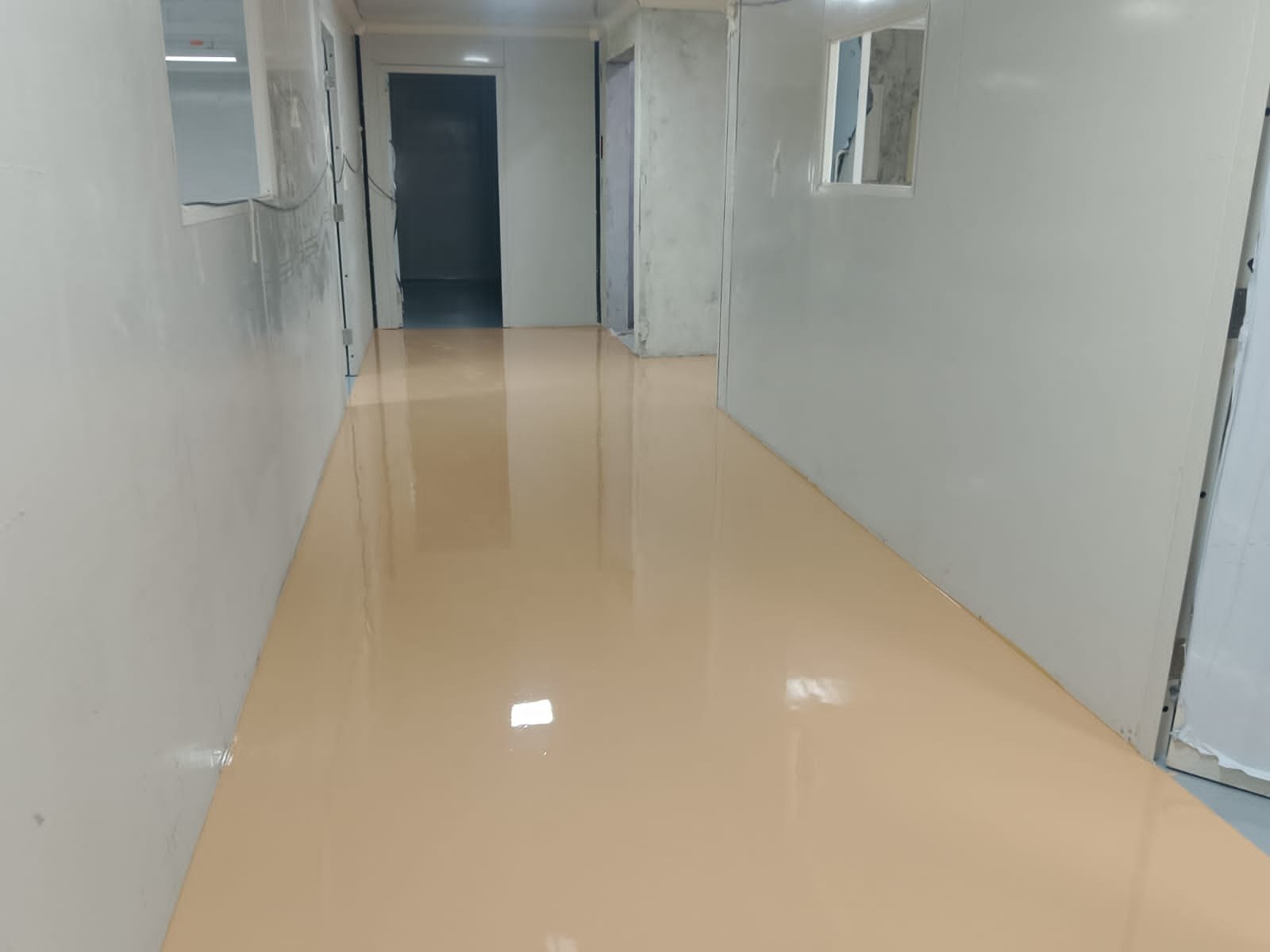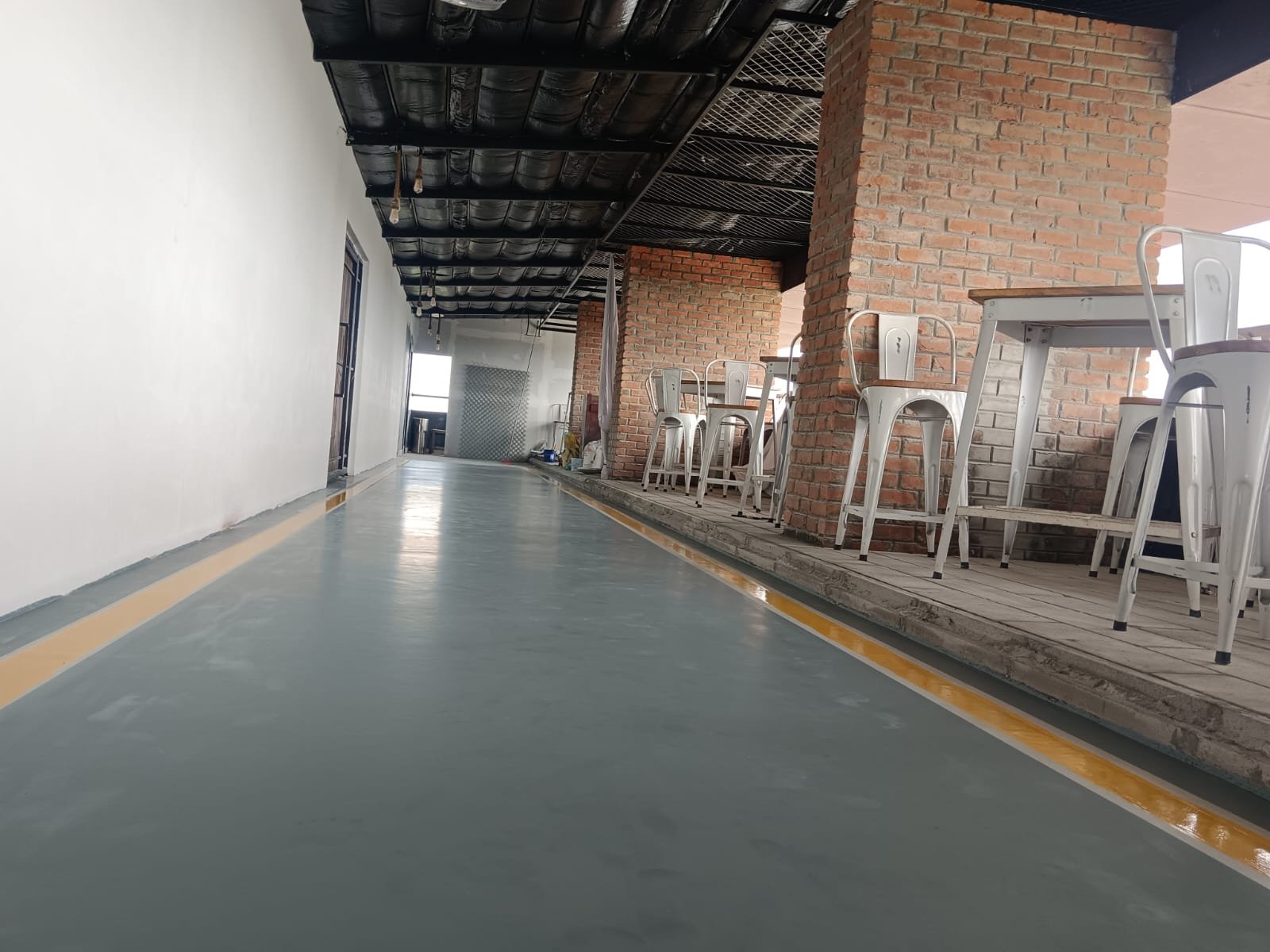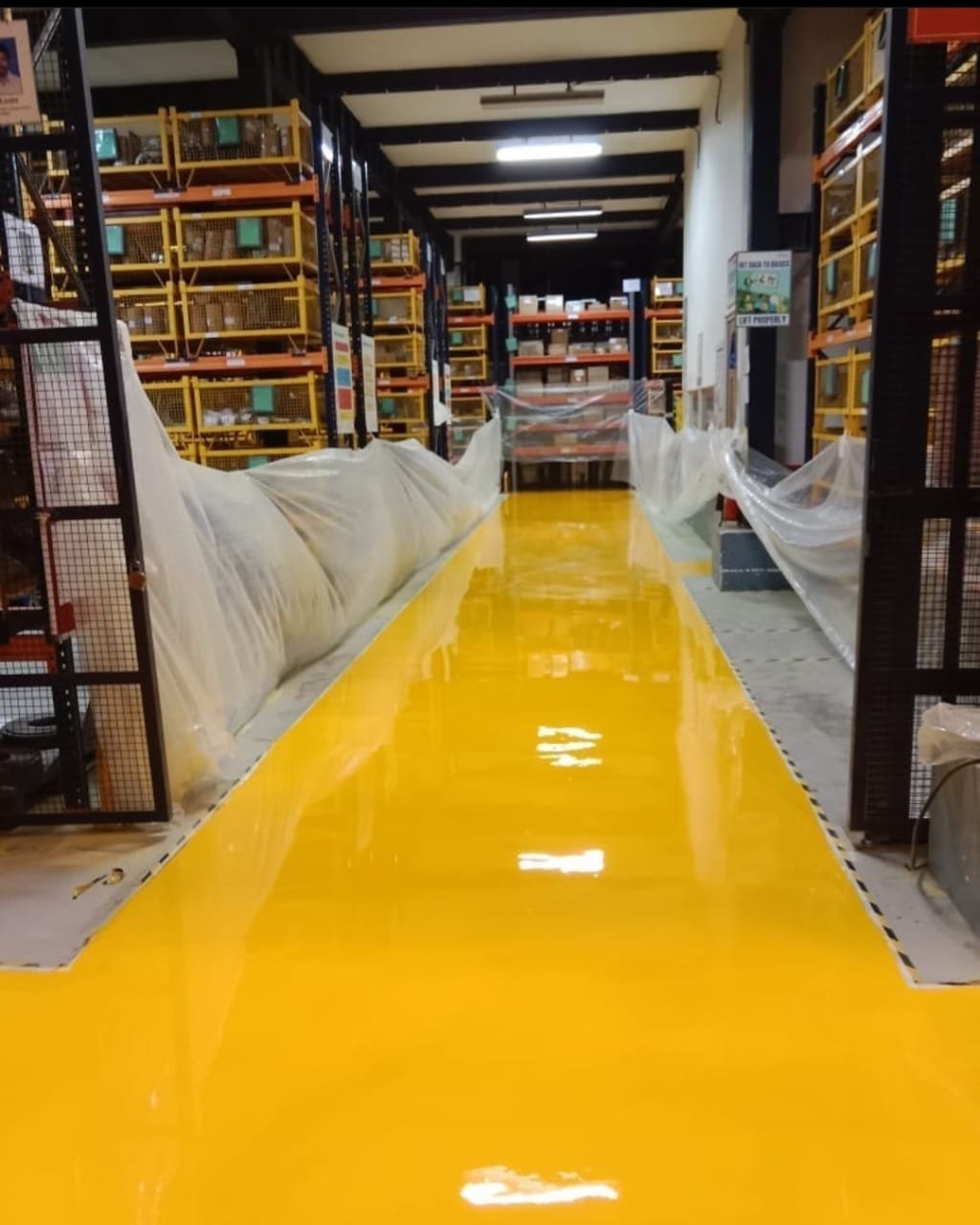IMPORTANCE OF EPOXY FLOORING IN MEAT INDUSTRY
IMPORTANCE OF
EPOXY FLOORING IN MEAT INDUSTRY
INTRODUCTION
Epoxy flooring
plays a crucial role in maintaining high standards of hygiene and safety within
the meat industry. These durable and specialized floor coatings not only
withstand the harsh conditions typical of meat processing, such as frequent
cleaning with strong chemicals and exposure to organic acids, but they also
contribute significantly to preventing bacterial growth and contamination.
HOW EPOXY FLOORING
MEETS THE REQUIREMENTS OF MEAT INDUSTRY?
Epoxy flooring
meets the rigorous requirements of the meat industry in several essential ways:
v
Durability
and Strength: Meat
processing facilities experience heavy foot traffic, equipment movement, and
frequent cleaning with harsh chemicals. Epoxy floors are highly durable and
resistant to abrasion, impact, and chemical corrosion, ensuring they can
withstand these demanding conditions without deteriorating.
v
Smooth
and Seamless Surface:
Epoxy flooring provides a smooth, seamless surface that is easy to clean and
maintain. This feature is crucial in preventing the accumulation of dirt,
grease, and bacteria, which are common in meat processing environments and can
compromise hygiene standards.
v
Chemical
Resistance: Meat
processing involves the use of strong disinfectants and cleaning agents to
maintain sanitation. Epoxy floors are resistant to a wide range of chemicals,
including organic acids and alkalis, ensuring that they can be effectively
cleaned without causing damage to the flooring material.
v
Hygienic
Properties: Epoxy floors
are non-porous and have antimicrobial properties when properly installed and
maintained. This makes them resistant to bacterial growth, which is critical in
preventing contamination and ensuring food safety compliance in the meat
industry.
v
Temperature
Resistance: Meat
processing facilities often operate under varying temperature conditions,
including cold storage areas. Epoxy flooring can withstand temperature extremes
without cracking or becoming brittle, maintaining its integrity over time.
v
Compliance
with Regulations:
The meat industry is highly regulated to ensure food safety and hygiene
standards are met. Epoxy flooring systems can be formulated to meet specific
regulatory requirements, providing assurance that facilities comply with
industry standards and regulations.
Thus, epoxy
flooring is an indispensable choice for the meat industry due to its durability,
hygiene benefits, chemical resistance, and compliance with stringent
regulations. It plays a crucial role in maintaining a clean, safe, and
efficient environment for meat processing operations.
CONCLUSION
In conclusion,
epoxy flooring stands as a cornerstone of safety, hygiene, and operational
efficiency within the meat industry. Its robust durability withstands the
demanding conditions of meat processing facilities, including heavy traffic and
frequent chemical exposure, ensuring long-lasting performance. In essence, the
importance of epoxy flooring in the meat industry cannot be overstated—it is
essential for maintaining a clean, safe, and compliant environment that upholds
the highest standards of quality and hygiene throughout the production process.

Related Posts
Leave a Reply Cancel reply
You must be logged in to post a comment.




